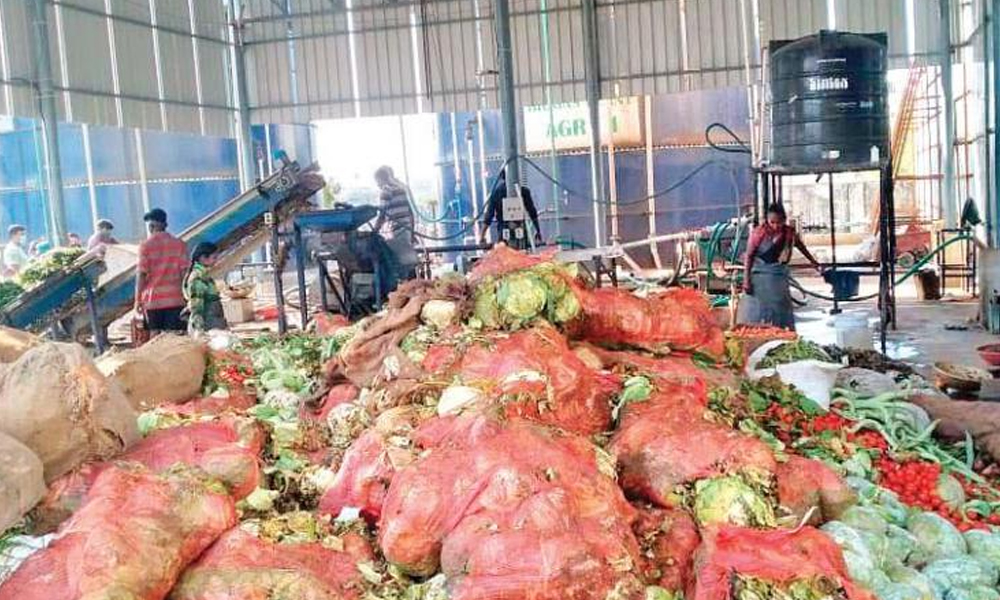
Image Credits: The New Indian Express
Hyderabad: Vegetable Waste From Bowenpally Market Generates Electricity, Biofuel
Writer: Rishab Shaju
A passionate, confident, and energetic student, I am a workaholic with an interest in the field of Broadcast Journalism. I always make sure to meet my deadlines and can work well under pressure. Other than journalism, I am also interested in the field of Psychology and Literature. Timeliness and honesty are the two most important factors that define me. If not journalism, I would want to be a professor or a social worker.
Telangana, 19 Jan 2021 4:53 AM GMT
Editor : Prateek Gautam |
A free soul who believes that journalism, apart from politics, should stand for social cause and the environment.
Creatives : Abhishek M
" An engineer by profession, Abhishek is the creative producer of the team, graphic designing is his passion and travelling his get away. In more ways than one, he makes the content visually appealing."
The Bowenpally market in Hyderabad collects close to 10 tonnes of vegetable waste on an everyday basis. Every ounce of vegetable, fruit, and even flower waste is collected and used to generate around 500 units of electricity and 30 kg of biofuel.
At the Bowenpally market in Hyderabad, close to 10 tonnes of vegetable waste is collected every day. This waste, which was once worthless, is finally adding meaning to a lot of lives. Today, every ounce of vegetable, fruit, and even flower waste is collected and used to generate around 500 units of electricity and 30 kg of biofuel.
The electricity that is generated is used to light up over 100 streetlights, 170 stalls, an administrative building, and the water supply network. The biofuel that is generated is pumped into the canteen of the market.
The Bowenpally selection grade secretary Lokini Srinivas said to The New Indian Express, "One would have never imagined that vegetable trash can be so valuable. This is the first initiative taken up by any vegetable market in the State to convert organic waste to electricity. We had started the project almost six months ago on a trial basis, which is now giving us very good results. For the bio-vegetable plant, we are using waste that is entirely generated here. We also collected vegetable waste from some nearby vegetable markets and supermarts. The Bowenpally market requires around 800-900 units of electricity on a daily basis, of which 500 units are now being generated from the waste management plant."
"For generating electricity, the vegetable waste is first put on conveyor belts that carry the waste of shredders. The shredded waste is then converted into a slurry and is later put into large containers or pits to start the process of anaerobic digestion. The organic waste that is generated is then converted into biofuel, which has methane and carbon dioxide as the two major components.
After this, the fuel is put into 100 percent biogas generators, which converts the fuel into electricity. This electricity reaches the market's electricity bulbs," explained Shruti Ahuja, the director of Ahuja Engineering.
She also added that apart from the generation of electricity and biofuel, the plant also generates organic manure that can be used for farming.
"The biggest benefactor here is the environment. Ten tonnes of waste which would have just piled up at some landfill is now generating biofuel and bio manure," she said.
Also Read: Hyderabad Techies Pledge To Eliminate Single-Use Plastic Usage
 All section
All section














